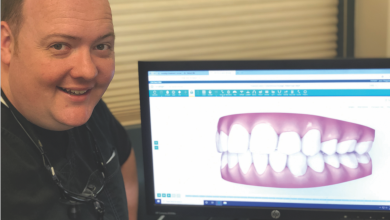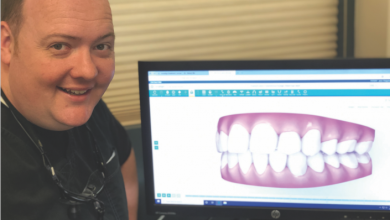The Best Dentist
There is a constant stream of mail that passes across my desk. How to attract new patients, the latest porcelain materials, fancy new equipment to buy, courses on this or that – the list just goes on. One of my favorites is the “America’s Best Dentist” ad. For only $39.95, or whatever they charge, I can get a wall plaque or a beautifully appointed desk display stating that I am one of the best dentists in America. No need for a peer review board. No need for consumer input. I simply fill out a form, send in a check, and I become credentialed as one of the best.
A common question we hear as people move away is, “How do I find a good dentist?” Dentistry is a very personal profession. Having someone put her or his fingers in your mouth, pull your cheeks this way and that, and lean you back on your head requires a lot of trust. And often there really isn’t a good way to check out a dental provider before actually putting yourself in their hands.
So here are some questions that we suggest people ask as they search for a new dentist (or physician, plumber, mechanic, attorney, contractor, etc.):
- Look up local specialists – endodontists and periodontists are great – and ask their front offices who does good work. Some may be hesitant to mention names because they do not want to upset their referral base. However, others will give you a frank and honest appraisal of dentists in the area. It never hurts to ask.
- If you belong to some sort of group – civic, church, community – ask some of the people in your group which dentists are well-respected in the area. When you ask enough people, common themes will begin to emerge.
- Interview the office. Call the dental office and ask to schedule time to meet the dentist. You can ask about treatment philosophy, materials s/he uses, etc. and get a sense for if your outlooks on dental care are similar. You can also talk with the front office and clinical team to find out how they feel about working there.
- Check with the state dental board. You can always contact the state dental board and find out what a dentist’s history is. No one is perfect and sometimes consumers can have unrealistic expectations, but sometimes this can reveal a pattern of behavior over time.
When interviewing a dental office or a dentist you can ask questions relating to clinical acumen, how easy it is to work with the front office, insurance billing, etc. Personally I feel magnification is a must – every dentist ought to be using some level of magnification. You could also ask to see photographs of the dentist’s work – before and after photographs are best because you can get a better feel for what was accomplished. As you talk, you can also get a feel for how willing a provider is to spend time with you and listen to what your needs, wants, and desires are for your dental care.
Dental consumers will spend time with the front office – scheduling appointments, making financial arrangements, coordinating insurance billing, paying for services. It is important to know that the front office team will treat you with compassion and respect, and be a resource for you. For many people, the financial aspect of dentistry can be daunting and it is nice to talk through different options with someone who is knowledgeable and has your best interest at heart.
Ultimately, faith must be exercised – faith in the recommendation of a trusted friend, faith in the dentist, and faith in his or her team to provide top notch care for you. It is important to develop a relationship of trust between patient and provider. And if that trust does not exist, it is very difficult to provide great care. So the last piece of advice would be to find somewhere and someone who you feel good about. Do your due diligence in going through some of the questions above, and then pay attention to how you feel.
Hopefully this will be useful to someone out there :^)


